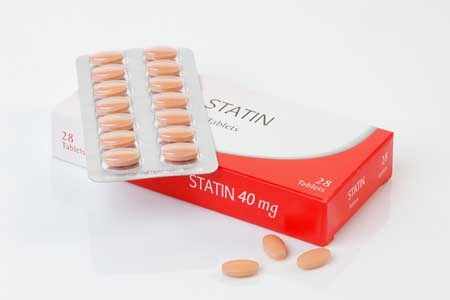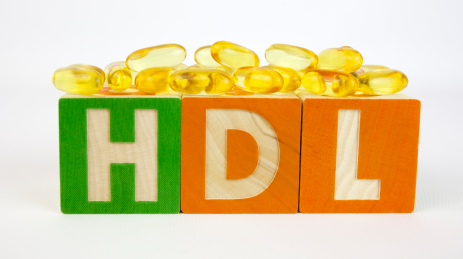Eating Walnuts and Other Tree Nuts May Lower Cholesterol
In a 2018 meta-analysis and systematic review published in the American Journal of Clinical Nutrition, researcher Marta Guasch-Ferré and colleagues shared their analysis of 26 studies of the effects of diets rich in walnuts on blood lipids and cardiovascular health. The studies included a total of 1059 participants. The walnut-heavy diets were associated with lower total cholesterol, lower LDL (“bad”) cholesterol, and lower triglyceride concentrations. They were also associated with lower apolipoprotein B, a component of LDL.
When walnut-enriched diets were compared to American diets and Western diets, the benefits of the added walnuts on total cholesterol and LDL cholesterol were even more dramatic. The researchers described a Western diet as high in red and processed meats, high-fat dairy products, processed and artificially sweetened foods, and with little intake of fruits, vegetables, fish, legumes, or whole grains.
Compared to control diets, the diets rich in walnuts did not cause weight gain or an increase in body mass index (BMI), and they also did not affect blood pressure.
The studies included in the meta-analysis lasted from four weeks to one year, with a mean length of 8 weeks. The amount of walnuts ranged from 15 to 108 grams per day. In most cases, participants were given whole walnuts to incorporate into whatever daily meal plan they were following, which in some cases was their usual diet and in others was an intervention diet such as a Mediterranean diet or a low-fat diet.
Another meta-analysis published in the American Journal of Clinical Nutrition in 2015 by Liana C. Del Gobbo and colleagues analyzed 61 studies about the effects of tree nuts on cholesterol and related measures, and similarly found that eating tree nuts lowers total cholesterol, LDL cholesterol, ApoB, and triglycerides. Del Gobbo and colleagues wrote, “The major determinant of cholesterol lowering appears to be nut dose rather than nut type.” Tree nuts include walnuts, pistachios, macadamia nuts, pecans, cashews, almonds, hazelnuts, and Brazil nuts.
Combination of SSRIs and Statins Better than SSRIs Alone
A large study in Denmark suggests that taking selective serotonin reuptake inhibitor (SSRI) antidepressants alongside cholesterol-lowering statin drugs improved depression more than SSRIs alone. The findings, by Ole Köhler and colleagues were reported in the American Journal of Psychiatry in 2016.
The study included 872,216 people in Denmark’s national health care database who took SSRIs between 1997 and 2012. The most common SSRIs were citalopram, sertraline, and escitalopram. Of these people taking SSRIs, 13.0% also took a statin drug, typically simvastatin. Those patients who were taking both an SSRI and a statin were less likely than those taking an SSRI alone to be hospitalized for any psychiatric problem, or for depression specifically.
Depression is known to be correlated with inflammation throughout the body. Statins reduce this inflammation as well as lowering cholesterol. A 2013 study by Ahmad Ghanizadeh and Arvin Hedayati in the journal Depression and Anxiety showed that the SSRI fluoxetine and the statin lovastatin reduced depression severity compared to fluoxetine alone.
The combination of SSRIs and statins did not seem to reduce deaths or suicidal behavior compared to SSRIs alone. Statins have some side effects, but combining them with antidepressants did not increase the risks associated with their use.
Meta-Analysis Suggests Statins Can Help Treat Depression
Depression and poor cardiovascular health often go hand in hand. Now it seems a treatment for high cholesterol may also help treat depression. A 2016 study by E. Salagre and colleagues in the Journal of Affective Disorders analyzed evidence from 3 earlier studies of drugs called statins, which inhibit an enzyme needed for the production of cholesterol, for people with depression.
The three studies included a total of 165 participants taking an antidepressant (citalopram or fluoxetine) for moderate or severe depression. Of these participants, 82 were prescribed an additional statin (lovastatin, atorvastatin, or simvastatin), while the remaining were given a placebo. After 6 to 12 weeks, those who had received a statin reported greater improvement in their depression than those who had received a placebo in addition to the antidepressant. No serious side effects were reported.
These data are also consistent with other studies showing that women on statins had fewer depressions over subsequent years than those not taking statins.
More Evidence that Statins Can Reduce Depression in People with Acute Coronary Syndrome
Many studies have linked depression and cardiovascular problems. The solutions may also be linked. A new study found that patients with depression and acute coronary syndrome saw their depression improve most when they took the selective-serotonin reuptake inhibitor (SSRI) antidepressant escitalopram and statins (used to lower cholesterol), while depression improved least among patients who took neither type of drug. Statin use was linked to improvement in depression after one year, while escitalopram was not. In a subset of the study, use of lipophilic statins in particular was linked to improvement in depression.
The study, published in 2015 by S.W. Kim and colleagues in the journal Translational Psychiatry, suggests that statins can improve depression regardless of antidepressant use, but combining statins with an SSRI may have an even more powerful effect on depression.
Depression and Obesity Linked in Study of Mexican Americans
 A 2015 study by Rene L. Olvera and colleagues in the Journal of Clinical Psychiatry indicated that among 1,768 Mexican-Americans living along the border from 2004–2010, 30% were currently depressed, 14% had severe depression, and 52% were obese. Women were more likely to be depressed, and more likely to have severe depression. Other factors making depression more likely included low education, obesity, low levels of “good” cholesterol, and larger waist circumference. Low education and extreme obesity were also linked to severe depression.
A 2015 study by Rene L. Olvera and colleagues in the Journal of Clinical Psychiatry indicated that among 1,768 Mexican-Americans living along the border from 2004–2010, 30% were currently depressed, 14% had severe depression, and 52% were obese. Women were more likely to be depressed, and more likely to have severe depression. Other factors making depression more likely included low education, obesity, low levels of “good” cholesterol, and larger waist circumference. Low education and extreme obesity were also linked to severe depression.
In a commentary on the article in the same issue, researcher Susan L. McElroy wrote that “the medical field needs to firmly accept that obesity is a risk factor for depression and, conversely, that depression is a risk factor of obesity.” She suggested that people with obesity, those who carry excess weight around their middles, and those who have related metabolic symptoms such as poor cholesterol should all be evaluated for depression. Likewise, those with depression should have their weight and body measures monitored. People with both obesity and depression should be evaluated for disordered eating.
New Injectable Treatment for Obesity
Liraglutide, an injectable drug used to treat Type 2 diabetes, has been approved by the Federal Drug Administration for the treatment of obesity. The drug is newly formulated in recommended doses of 3mg/day under the brand name Saxenda. Liraglutide is suggested for adults with a body mass of 30 or above, or 27 and above with other weight-related conditions such as hypertension, diabetes, or high cholesterol.
In clinical trials, out of 3,731 participants without weight-related comorbid conditions, 62% of those who received liraglutide lost at least 5% of their body weight, compared to 34% of those who received placebo. Of the 635 participants with Type 2 diabetes, 49% of those who received liraglutide lost at least 5% of their body weight, compared to 16% of those who received placebo. In the 422 participants with other weight-related comorbidities, 42% of those taking liraglutide lost 5% or more of their body weight compared to 21.7% of those on placebo.
There were also some improvements in risk factors for cardiovascular disease in people taking liraglutide.
Liraglutide affects appetite regulation, leading to reduced calorie intake that produces weight loss. The treatment is delivered in a pre-filled multidose pen that can be injected in the abdomen, thigh, or arm. Dosing begins at 0.6 mg/day to minimize unwanted gastrointestinal effects.
Inflammatory and Metabolic Abnormalities Predict Poor Response to Antidepressants
 There is mounting evidence that inflammation and metabolic problems are related to depression. A recent study by Vogelzangs et al. in the journal Neuropsychopharmacology examined 313 patients being treated for depression to see whether levels of inflammatory markers in the blood and metabolic factors such as cholesterol, blood pressure, and waist circumference predicted whether those patients would still (or again) be diagnosable with depression two years later.
There is mounting evidence that inflammation and metabolic problems are related to depression. A recent study by Vogelzangs et al. in the journal Neuropsychopharmacology examined 313 patients being treated for depression to see whether levels of inflammatory markers in the blood and metabolic factors such as cholesterol, blood pressure, and waist circumference predicted whether those patients would still (or again) be diagnosable with depression two years later.
Several factors predicted later depression, including high levels of the inflammatory marker interleukin-6, low HDL (“good”) cholesterol, higher than normal triglycerides, and high blood glucose (hyperglycemia).
People who had four or more types of inflammatory or metabolic abnormalities had almost twice the odds of having chronic depression. Among those study participants who had only recently begun taking antidepressant medication, having four or more of these risk factors made them almost 7 times more likely to be depressed during follow-up.
One explanation for the connection between inflammatory and metabolic dysregulation and depression is that inflammation and metabolic problems worsen and complicate a patient’s depression and reduce the patient’s responsiveness to traditional antidepressants. Alternative ways of treating these patients aimed at their inflammation and metabolism may be necessary.
Cinnamon’s Positive Effects in Type II Diabetes
Cinnamon has multiple positive effects that were affirmed in a meta-analysis by Robert W. Allen et al. in Annals of Family Medicine in 2013. Cinnamon lowered blood sugar, insulin levels, triglycerides, and low-density lipoproteins (“bad” cholesterol) while increasing high-density lipoproteins (“good” cholesterol). Cinnamon did not lower hemoglobin A1C, a global measure of glucose dysregulation, but that result could be explained by the short durations of some of the studies included in the meta-analysis.
Editor’s Note: Cinnamon’s role in the fight against type II diabetes remains to be determined, but a little bit may help those with diabetes or at risk for it. The researchers who produced the meta-analysis could not make a recommendation about how much cinnamon to add to one’s diet because the studies included in the meta-analysis had explored a wide range of doses.
When Added to Valproate, Memantine Increased HDLs (“Good” Cholesterol) But Did Not Enhance Effectiveness of Treatment
R.B. Lu and S.Y. Lee reported in a poster at the 5th Biennial Conference of the International Society for Bipolar Disorders in 2012 that adding memantine (Namenda) to treatment with valproate (Depakote) was associated with increases in high-density lipoproteins (HDLs) or “good” cholesterol in bipolar II depressed patients. However, the combination was no more clinically effective than valproate alone in treating the patients’ bipolar illness, as had been hoped.
Editor’s Note: These data on memantine’s failure to improve patients’ bipolar illness when used as an adjunct to valproate contrast with those of Amit Anand et al., who reported in 2012 that memantine was a partially successful adjunctive treatment when added to ongoing treatment with lamotrigine. This combination of lamotrigine plus memantine was associated with faster and more robust antidepressant effects than the combination of lamotrigine plus placebo in patients with bipolar depression. This effect was significant in the first four weeks of the study as the dose of memantine was slowly increased from 5mg/day to 20mg/day, but not over the last four weeks of treatment at 20 mg/day.
The data of Anand et al. makes theoretical sense. Since lamotrigine inhibits the release of glutamate and memantine inhibits the actions of glutamate at the NMDA receptor, the two together might produce additive decrements in glutamatergic actions through two different mechanisms. In contrast, valproate is more closely associated with increases in GABAergic mechanisms, and this may explain why its effects on bipolar disorder were not improved by the addition of memantine.
Keep Your Heart and Cardiovascular System Healthy
 Middle aged folks, watch your risk factors for cardiovascular disease. These include: high blood pressure, cholesterol, weight, and blood sugar (diabetes).
Middle aged folks, watch your risk factors for cardiovascular disease. These include: high blood pressure, cholesterol, weight, and blood sugar (diabetes).
According to Heartwire, an article in the New England Journal of Medicine indicates that having any of these risk factors increases the likelihood of cardiovascular disease later in life. The more risk factors one has, the greater the increase in risk.
Across the whole meta-analysis, participants with no risk factors at age 55 (total cholesterol level: <180 mg/dL;
blood pressure: <120 mm Hg systolic and 80 mm Hg diastolic; nonsmoking; nondiabetic) had drastically better odds
of avoiding death from cardiovascular disease through the age of 80 than participants with two or more major risk
factors (4.7% vs 29.6% among men and 6.4% vs 20.5% among women).People with an optimal risk-factor profile also had lower lifetime risks of fatal coronary heart disease or nonfatal MI (Editor’s Note: myocardial infarction, or heart attack) (3.6% vs 37.5% among men, <1% vs 18.3% among women) and fatal or nonfatal stroke (2.3% vs 8.3% among men,
5.3% vs 10.7% among women), compared with those with two or more risk factors.
What this article does not mention is that depression is a risk factor for coronary artery disease, and should be treated just as aggressively and persistently as the other cardiovascular risk factors.
Also as we’ve written before in the BNN, exercise is one element of a healthy life style that can positively affect all of these risk factors. Starting a healthy diet and exercise regimen in middle age will have long-term positive effects and reduce risks later in life.








